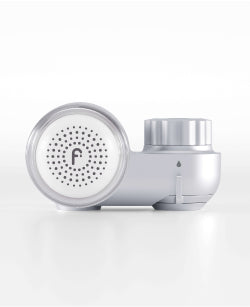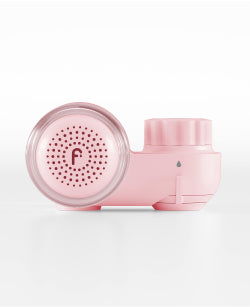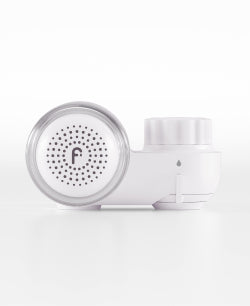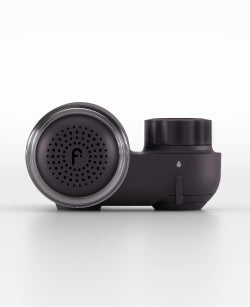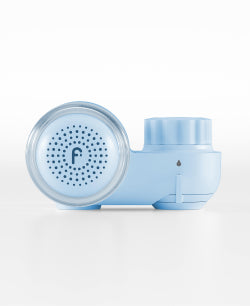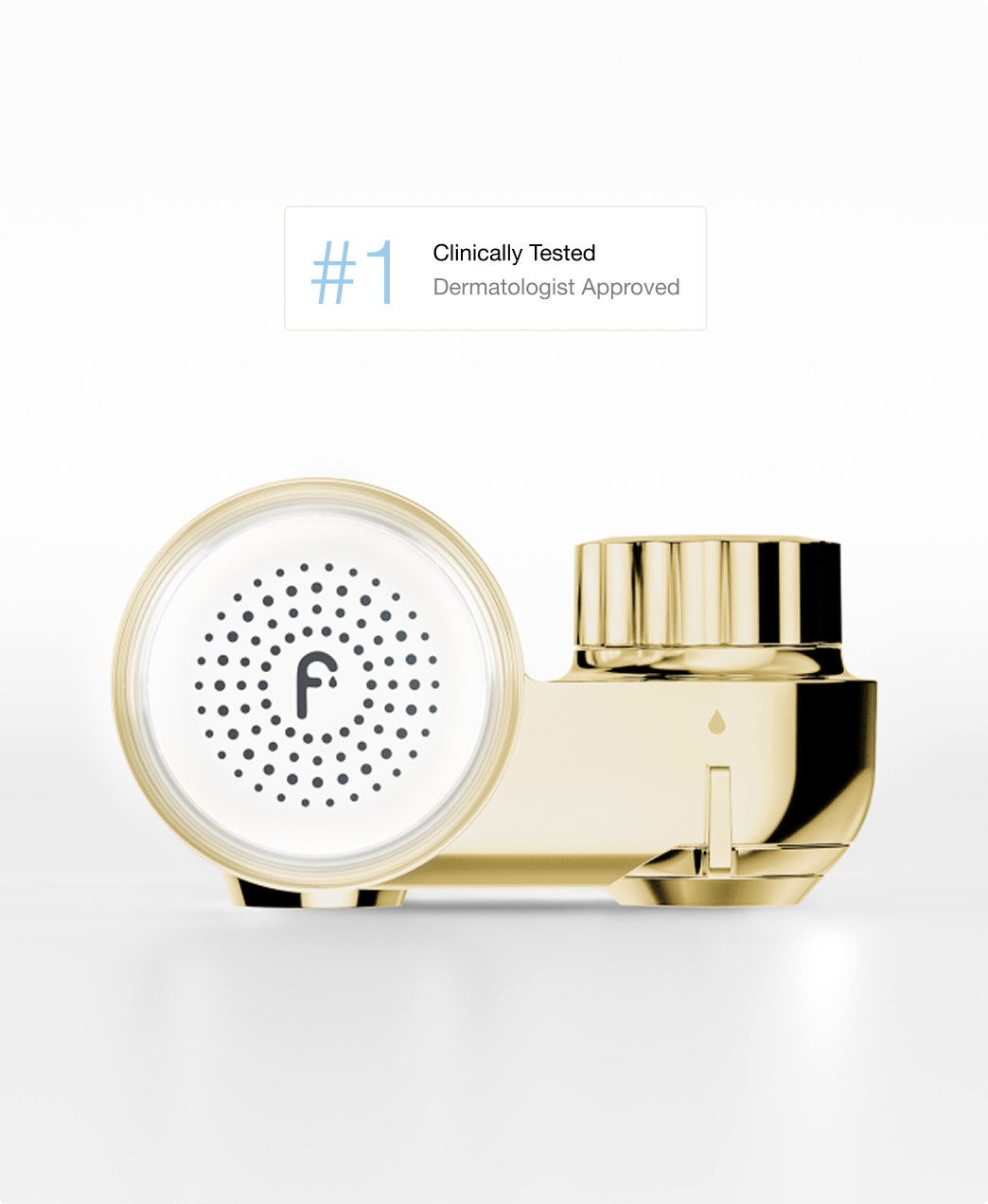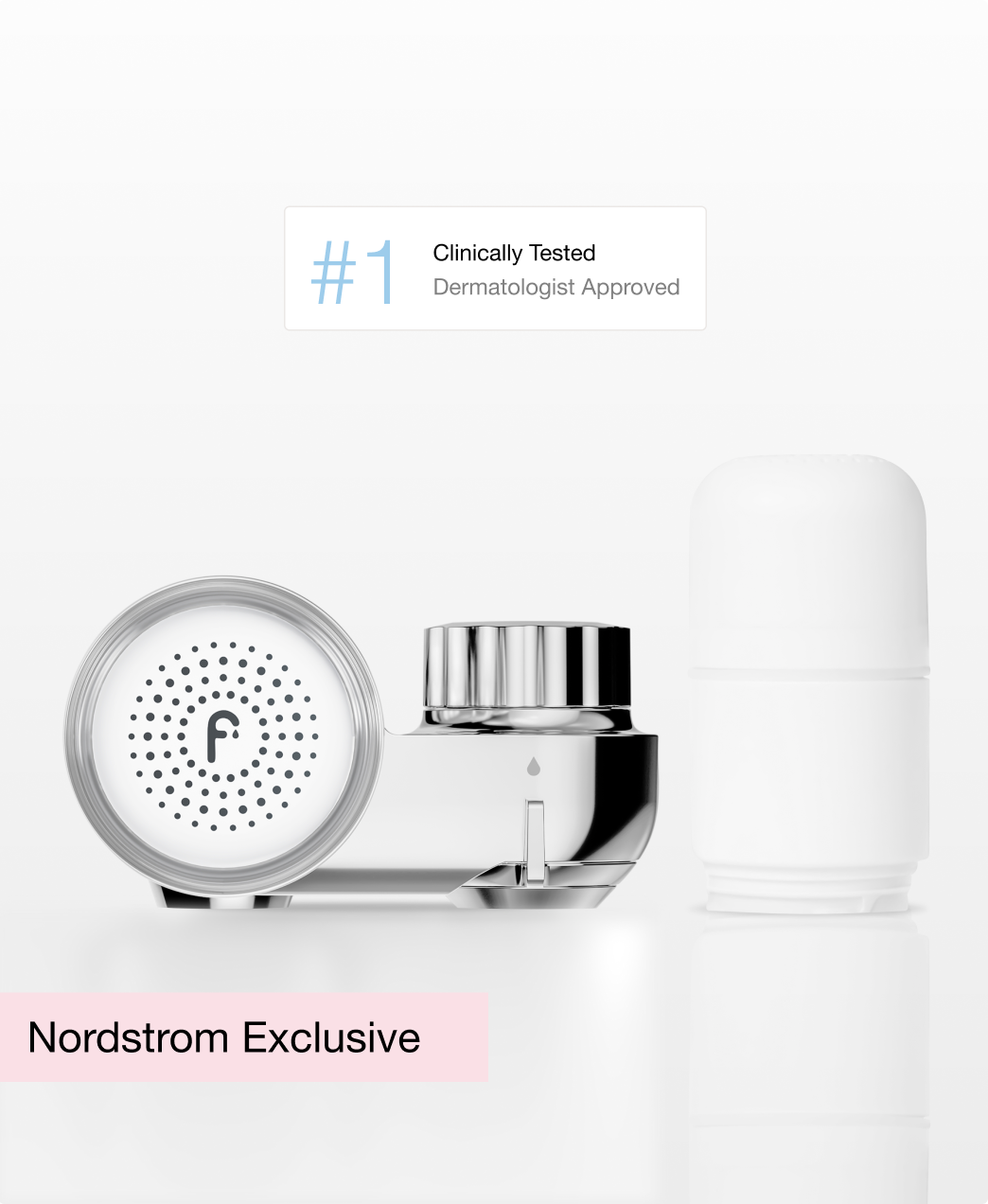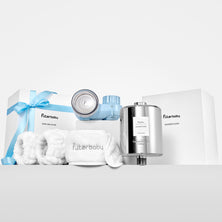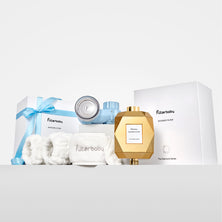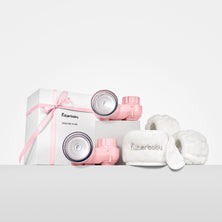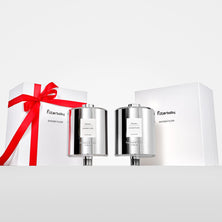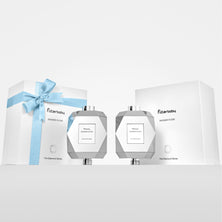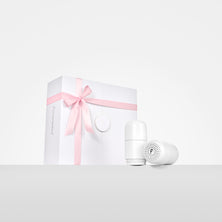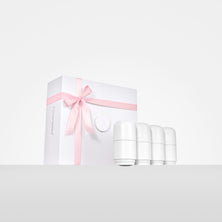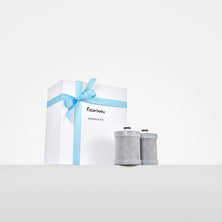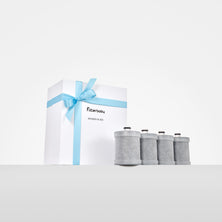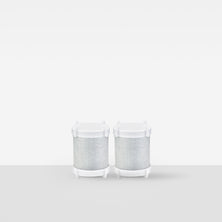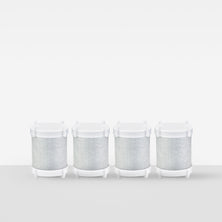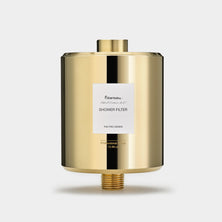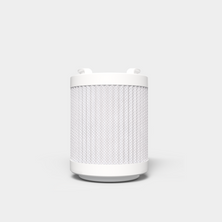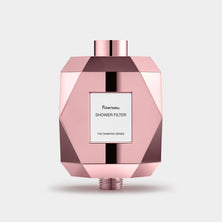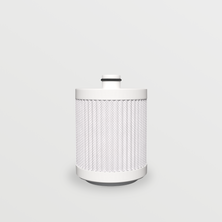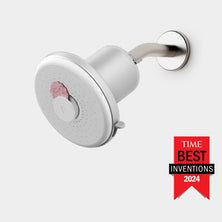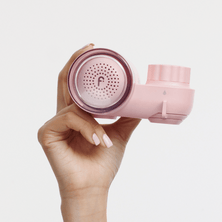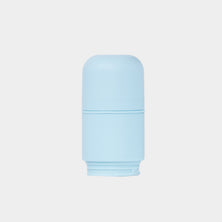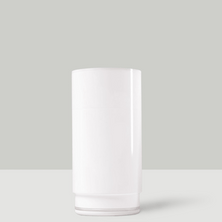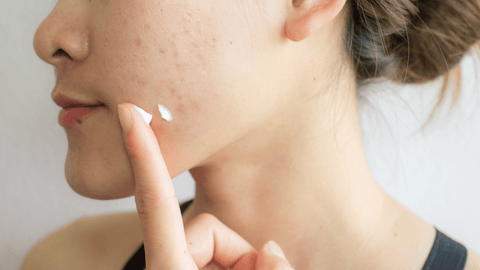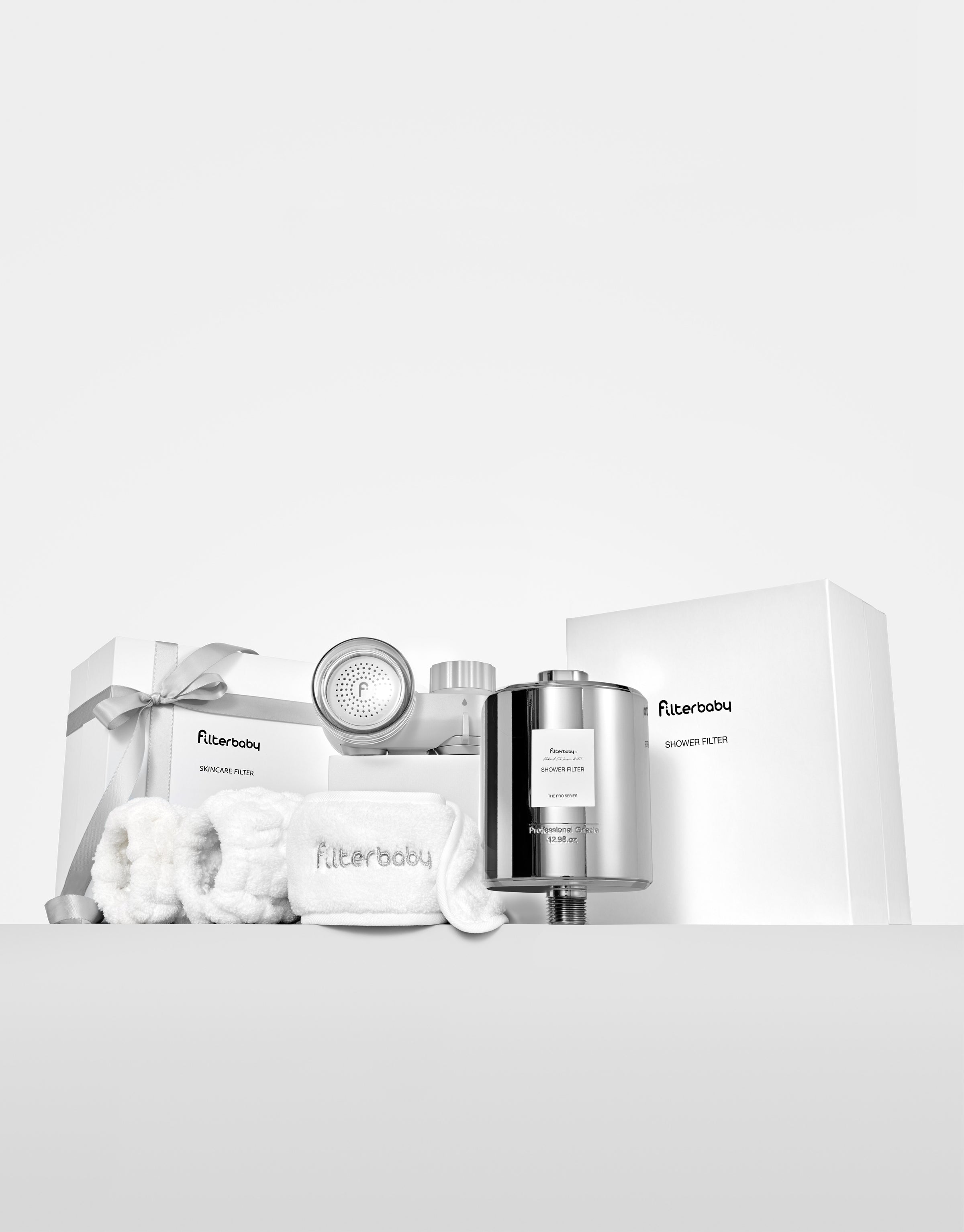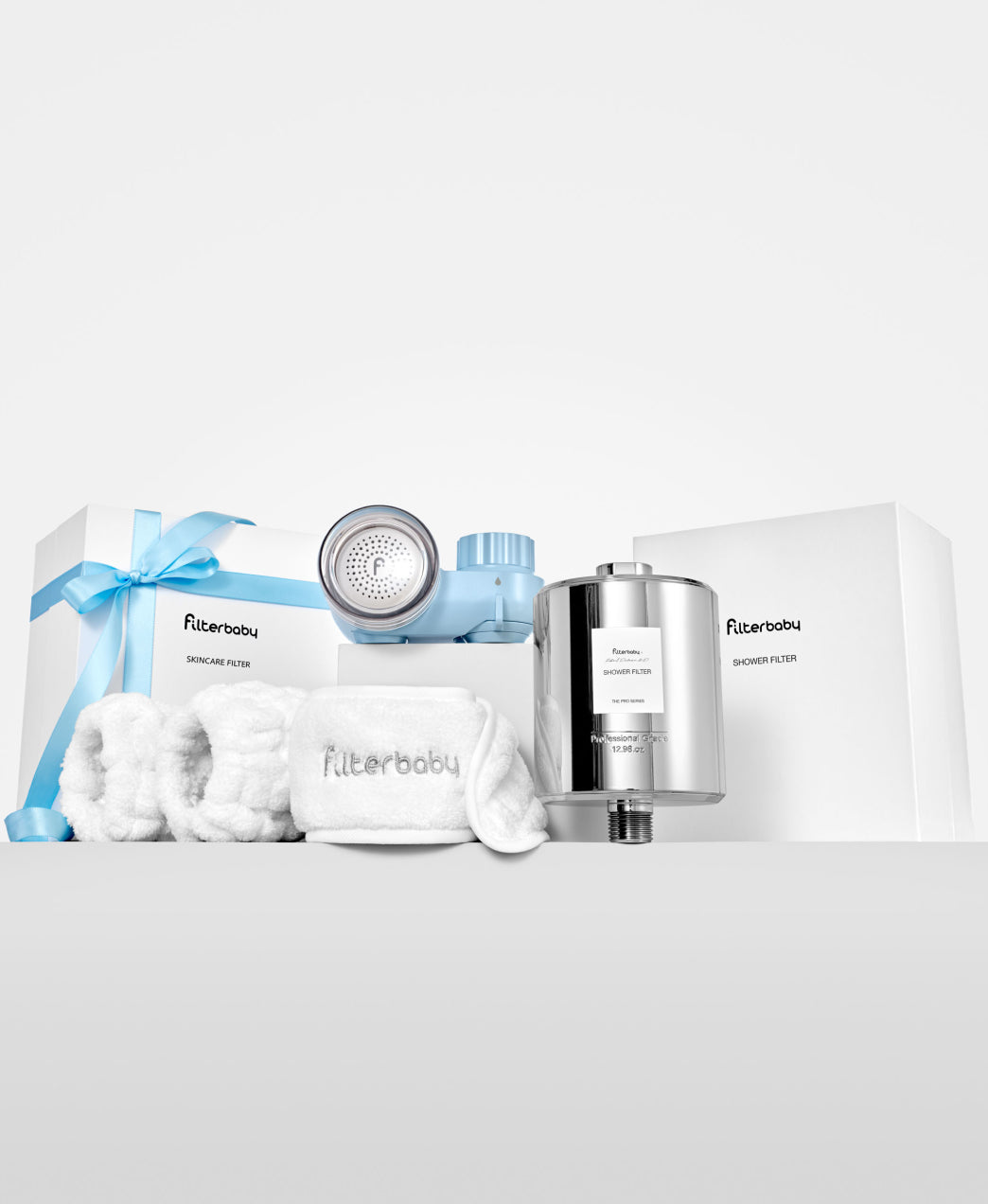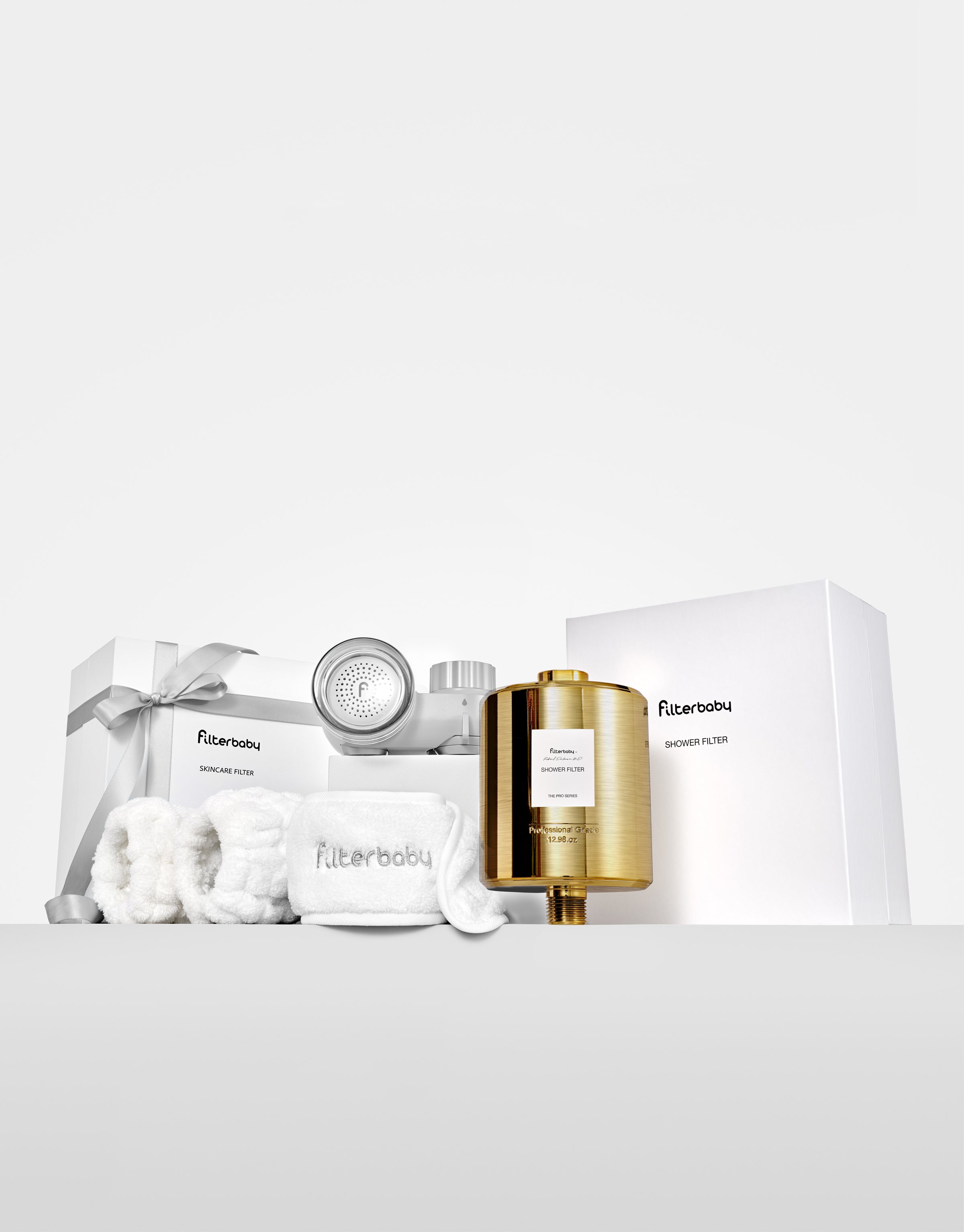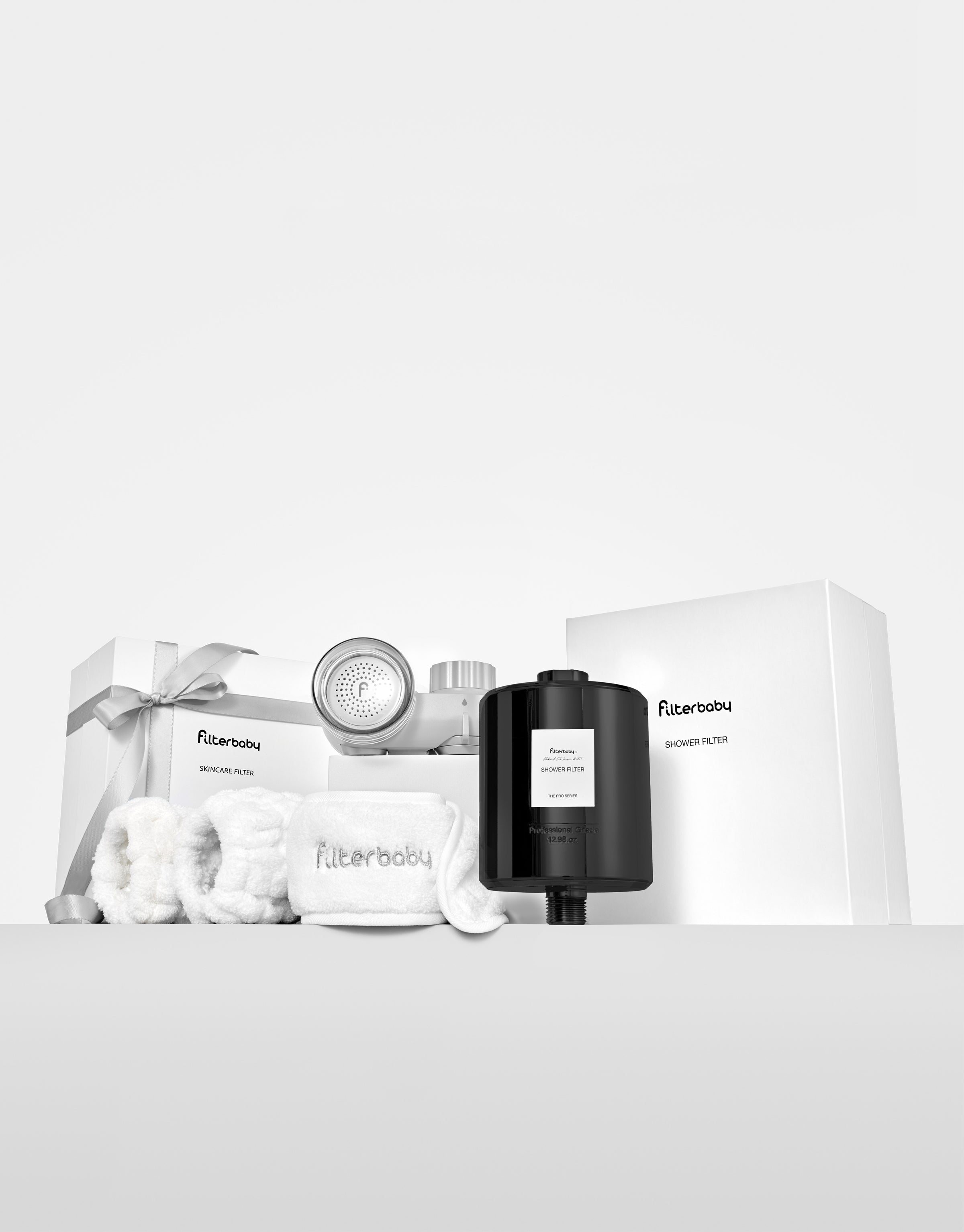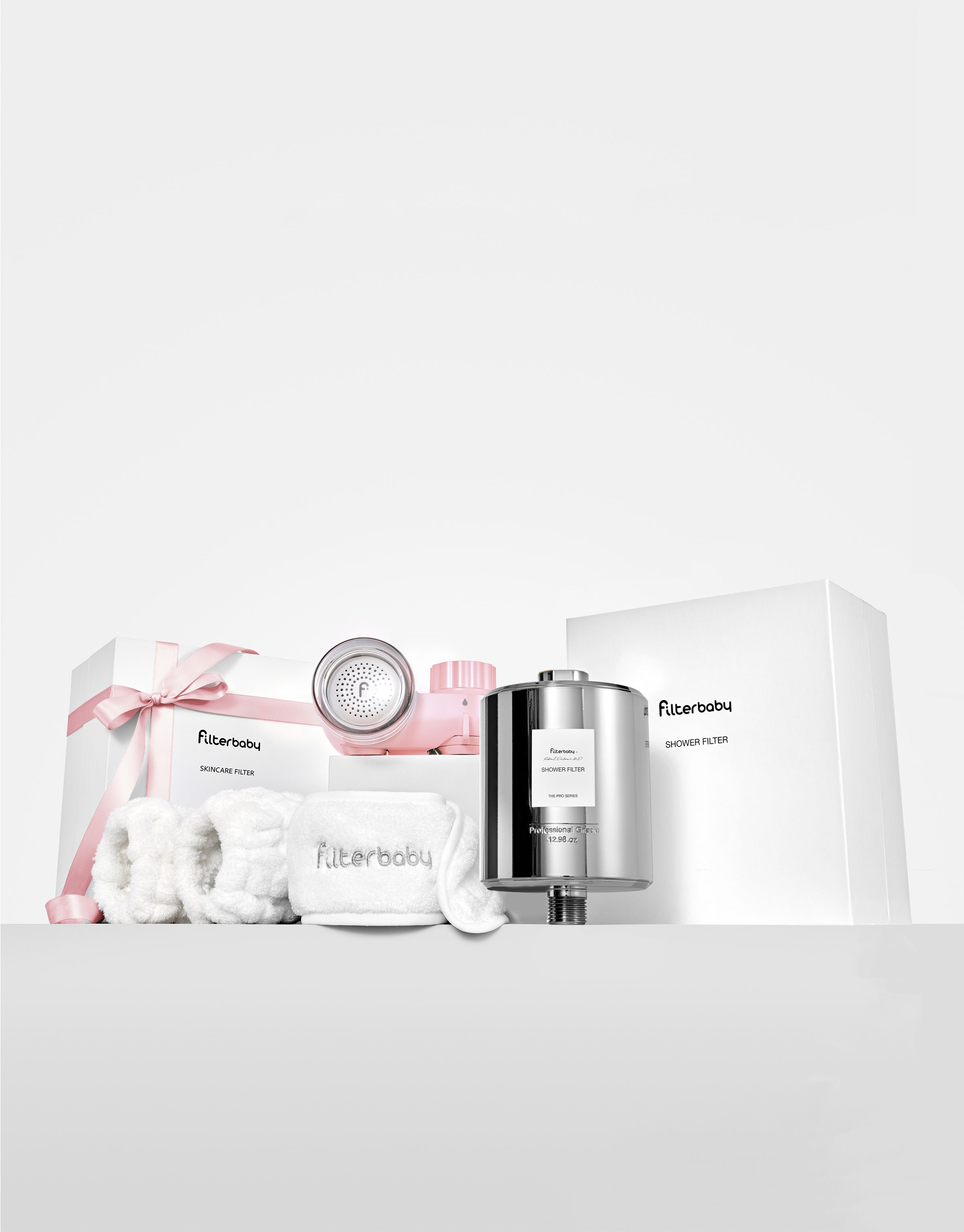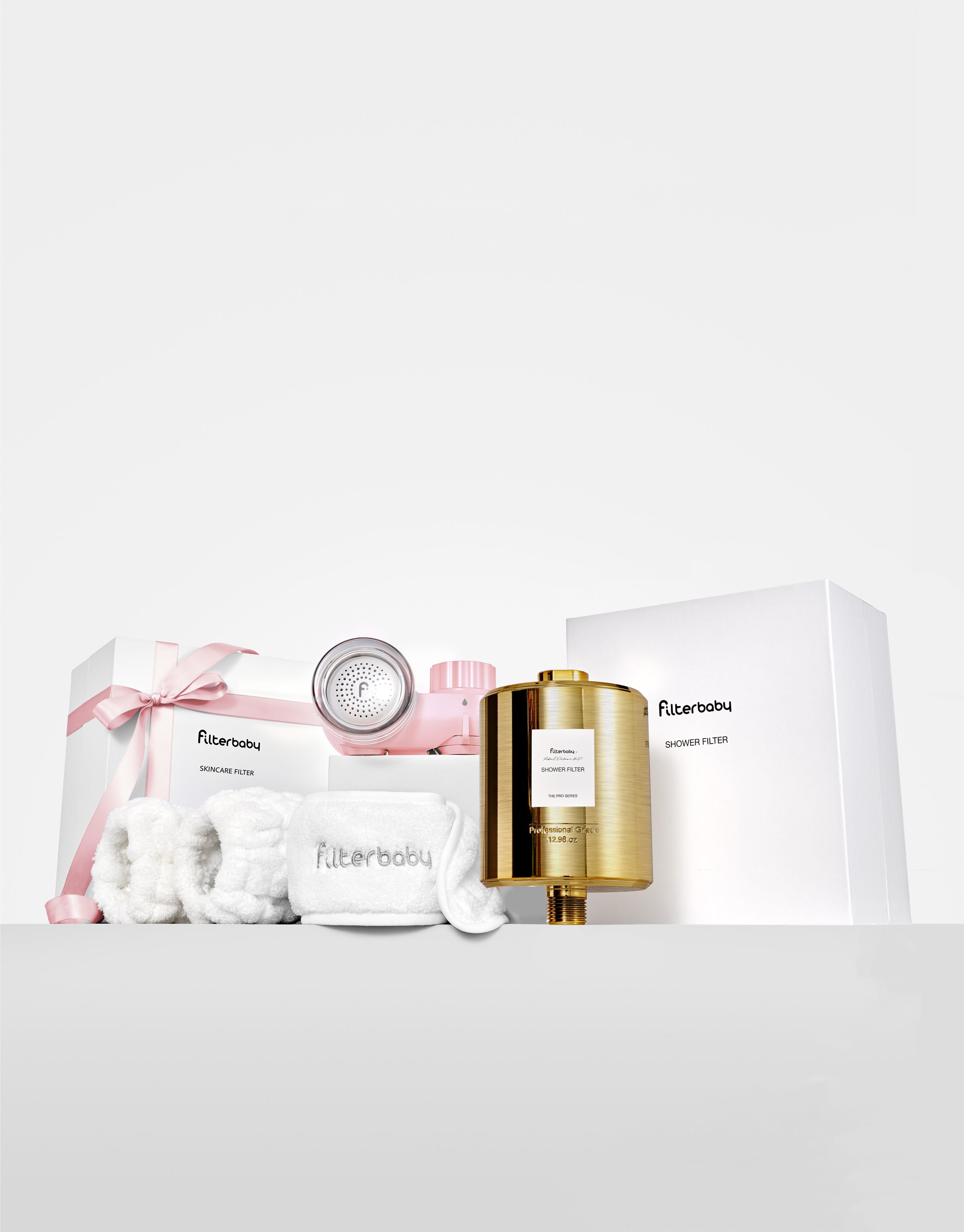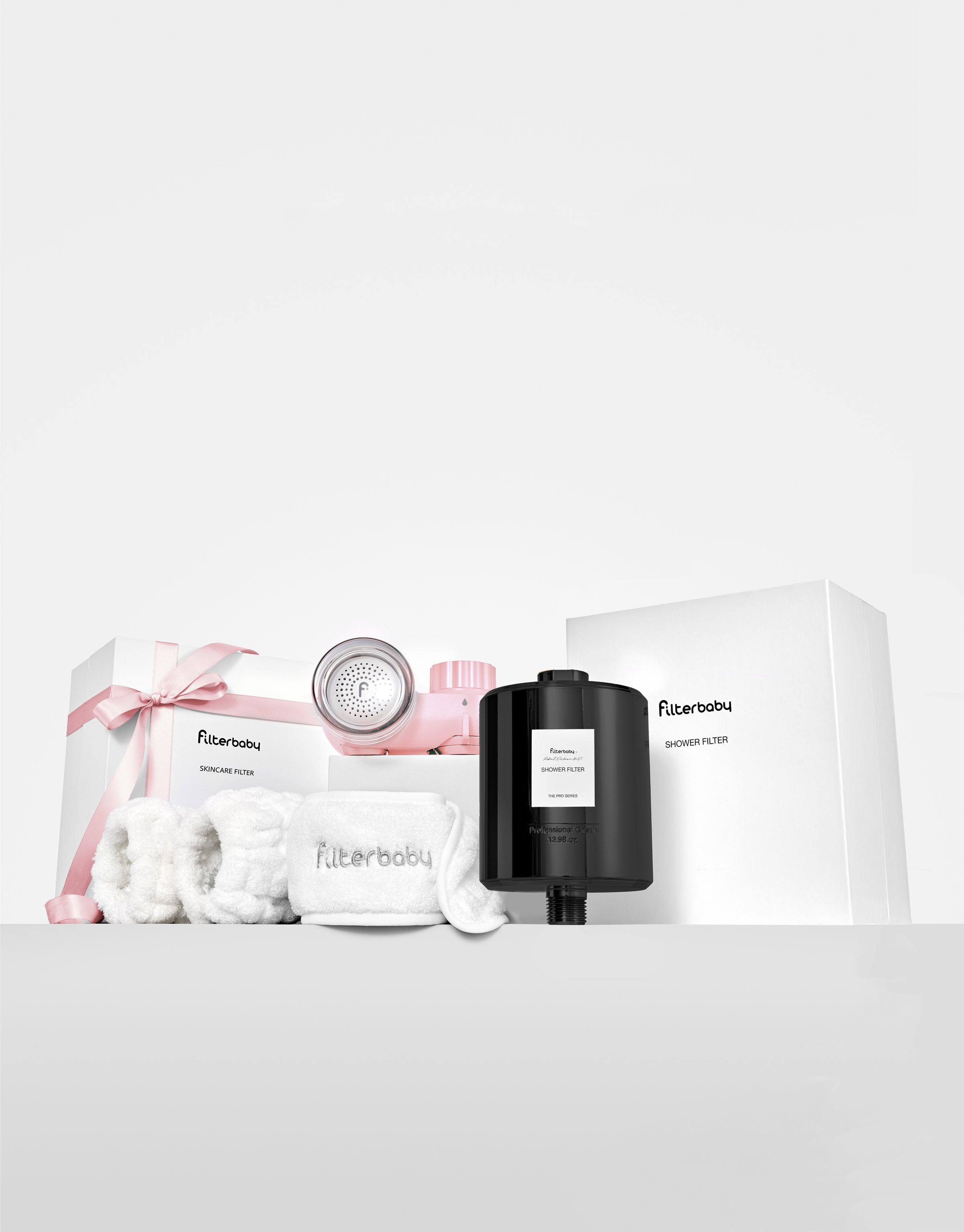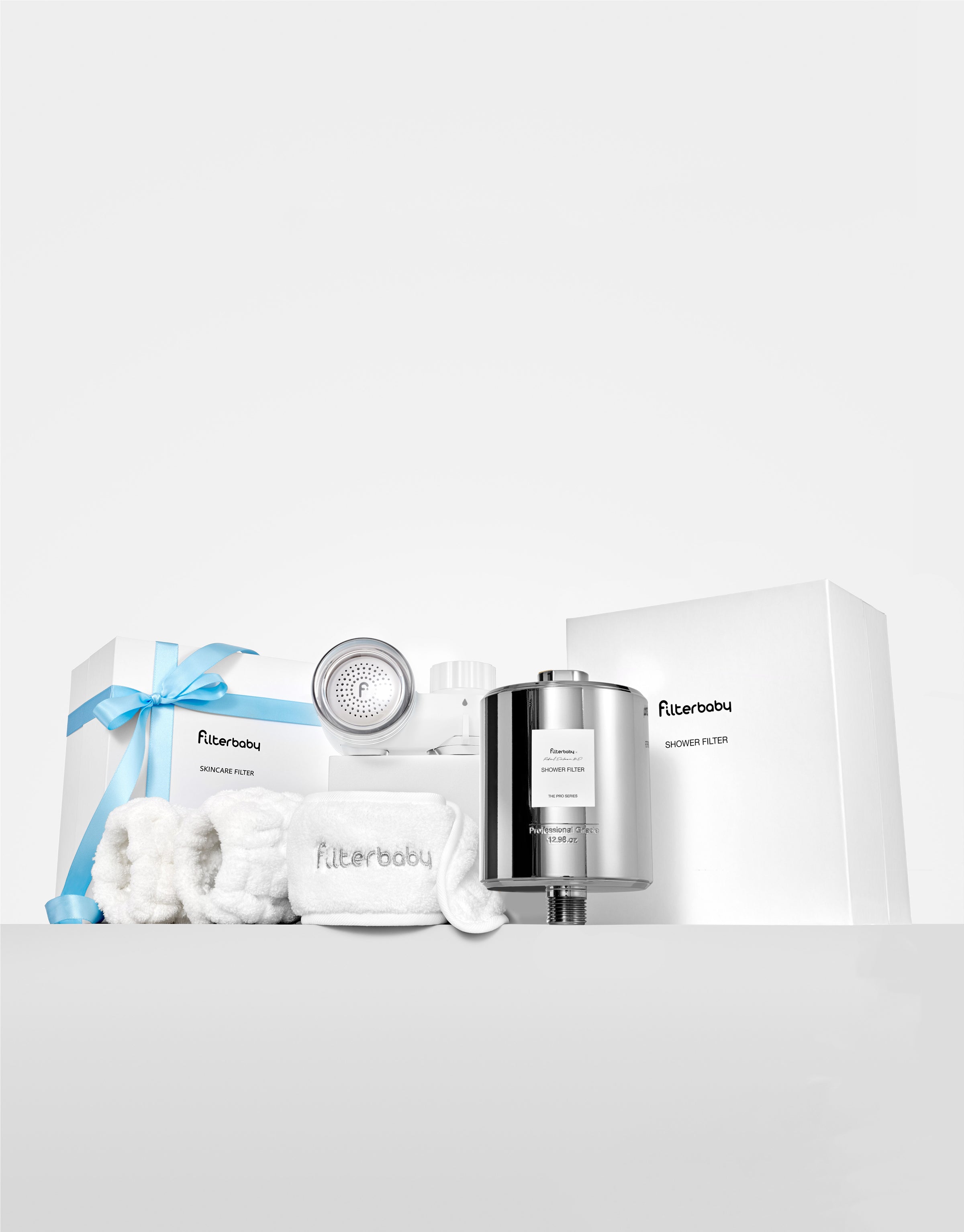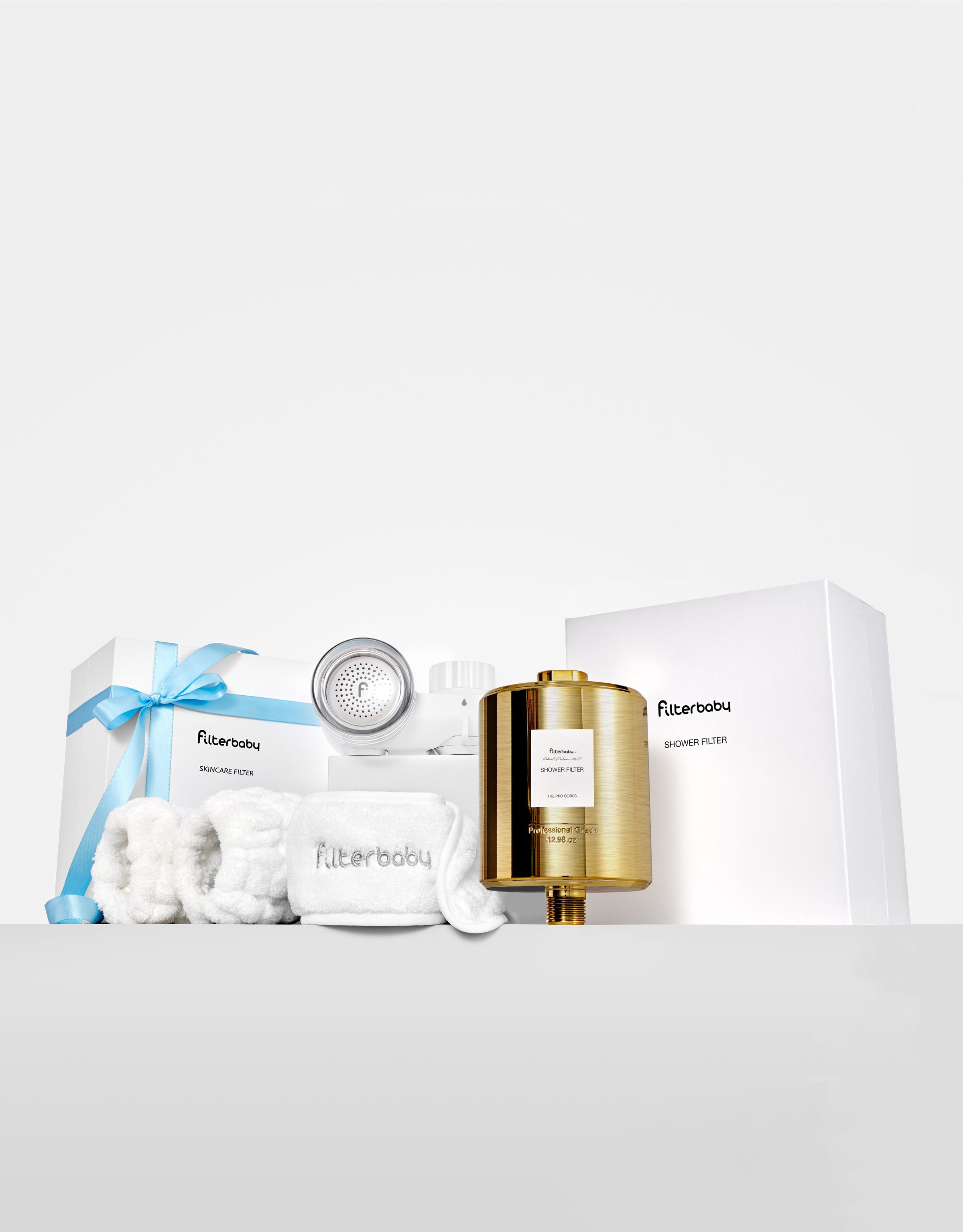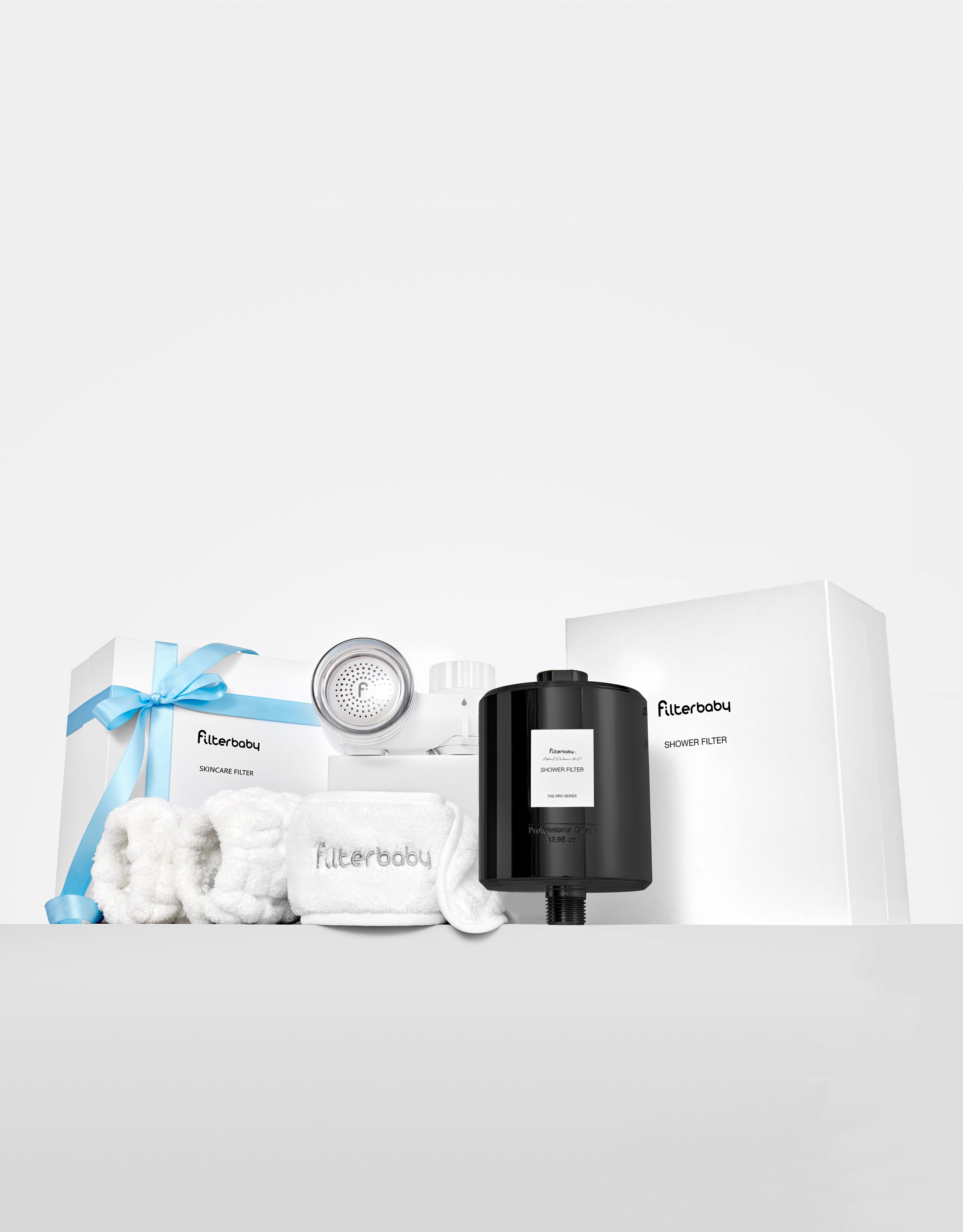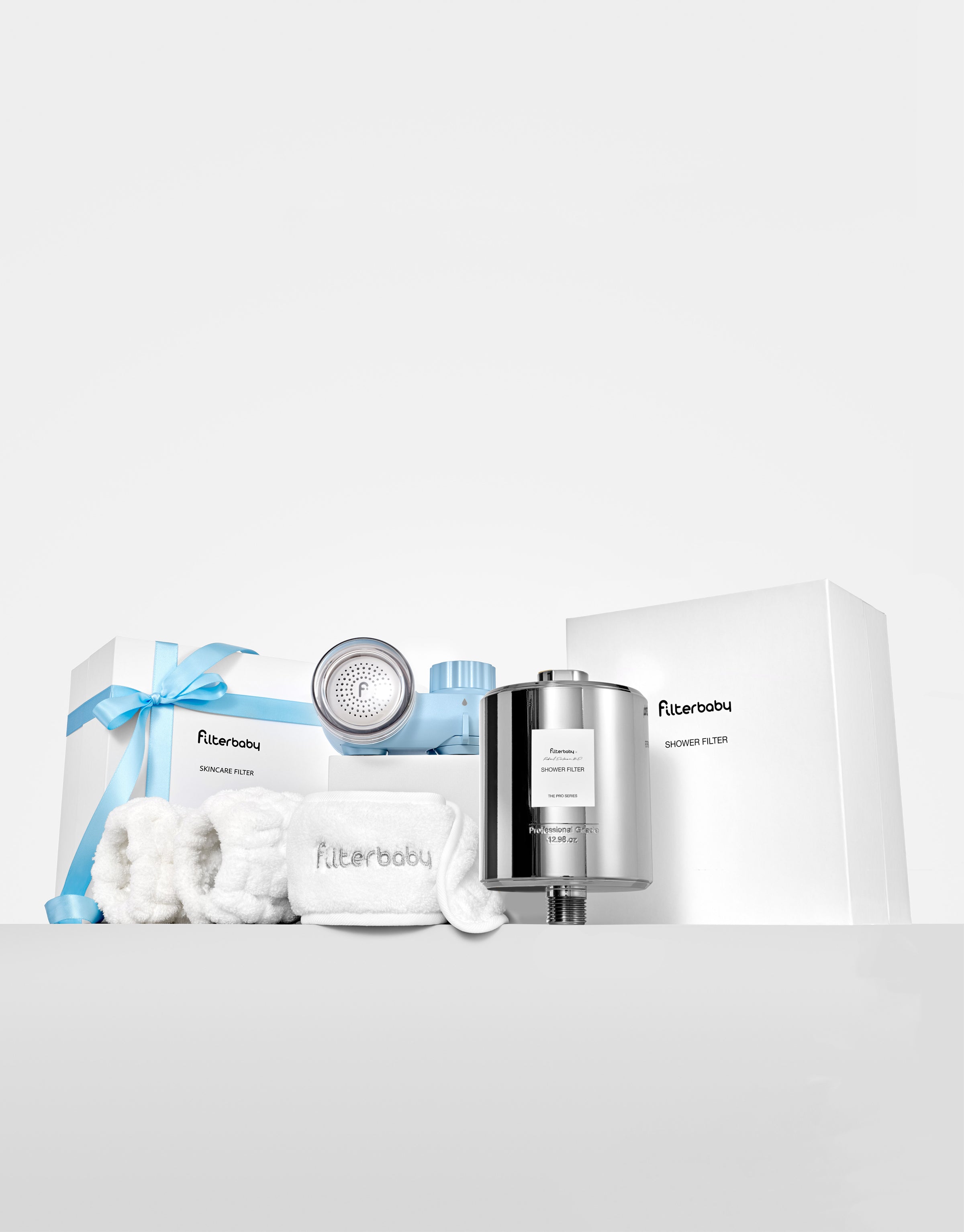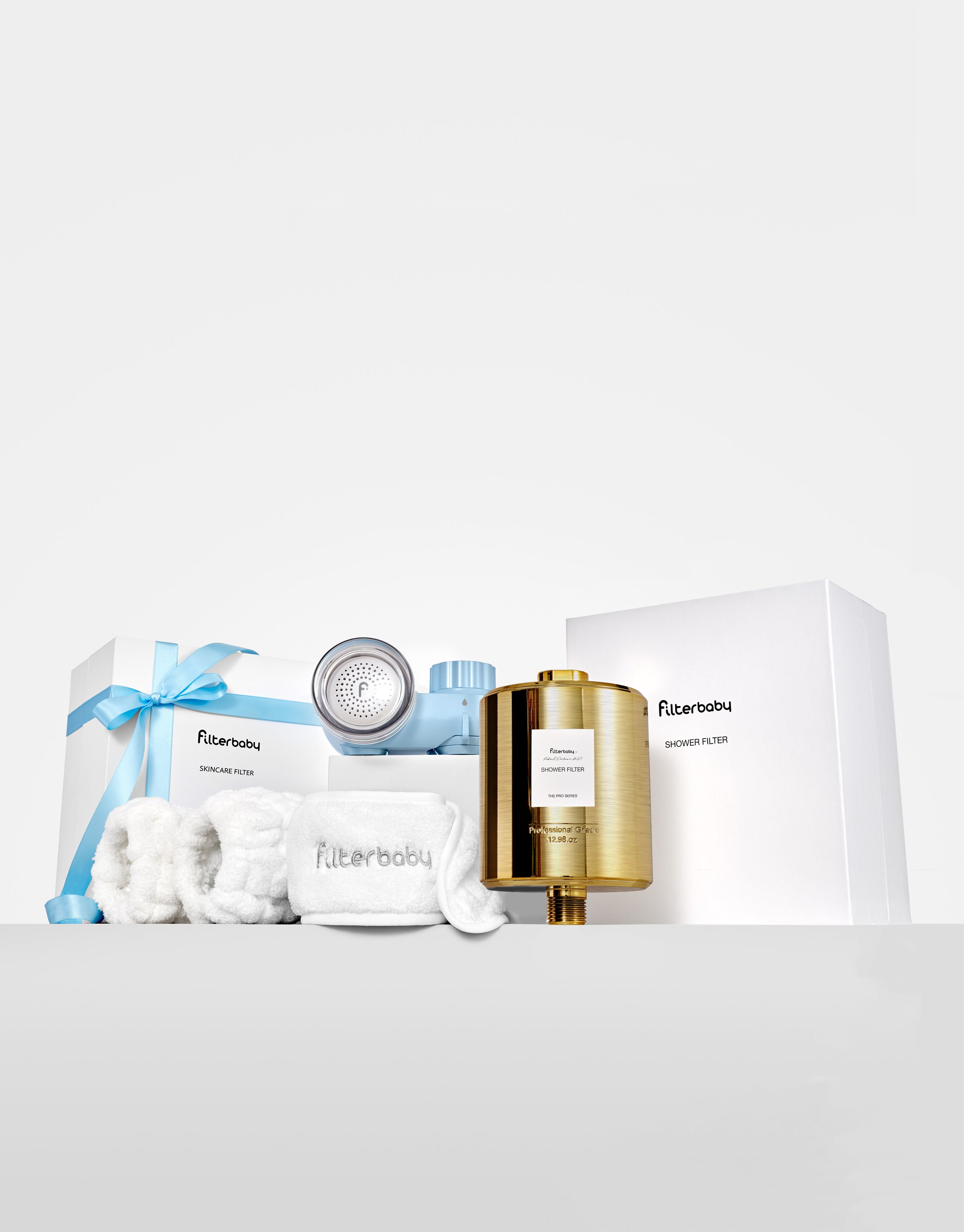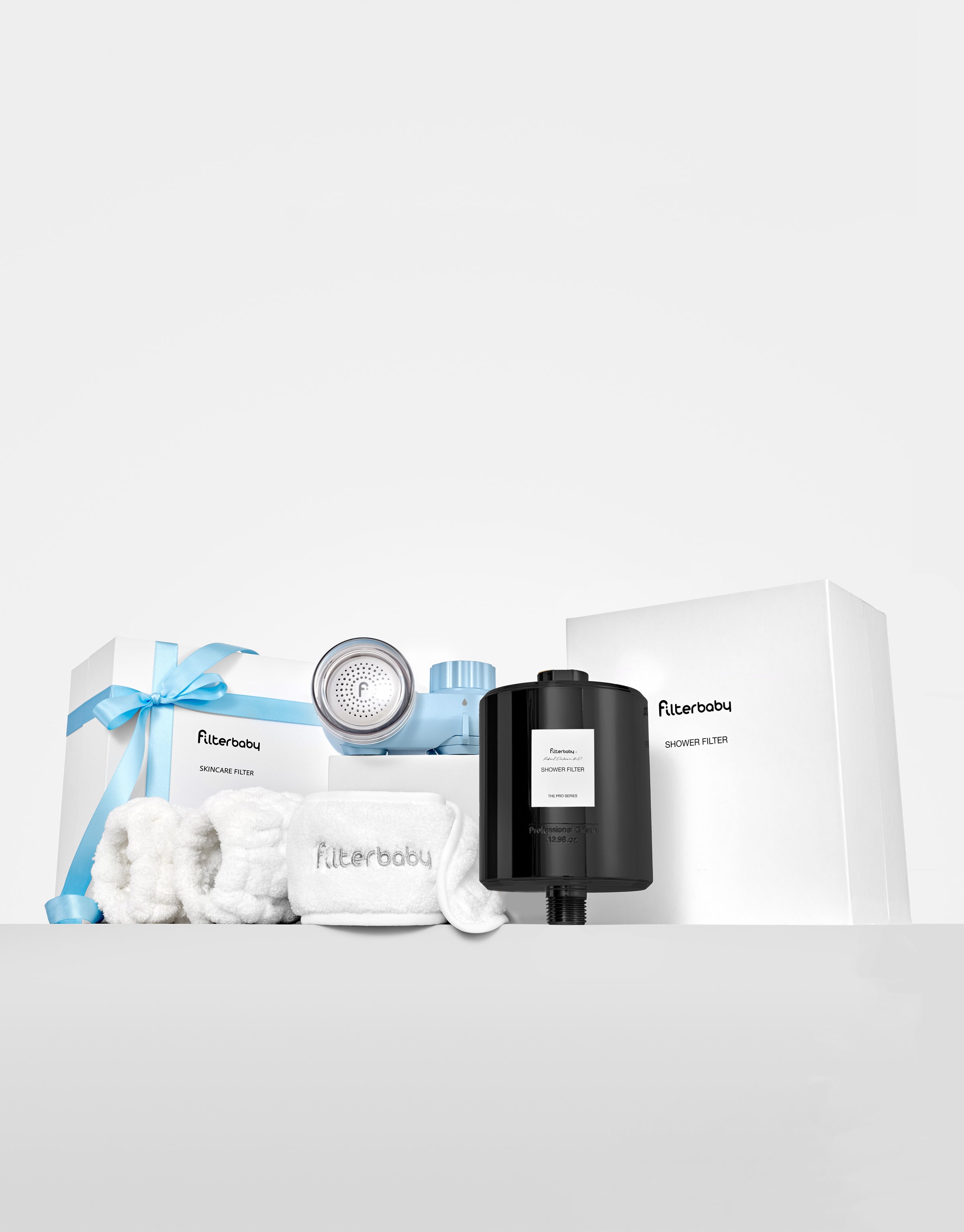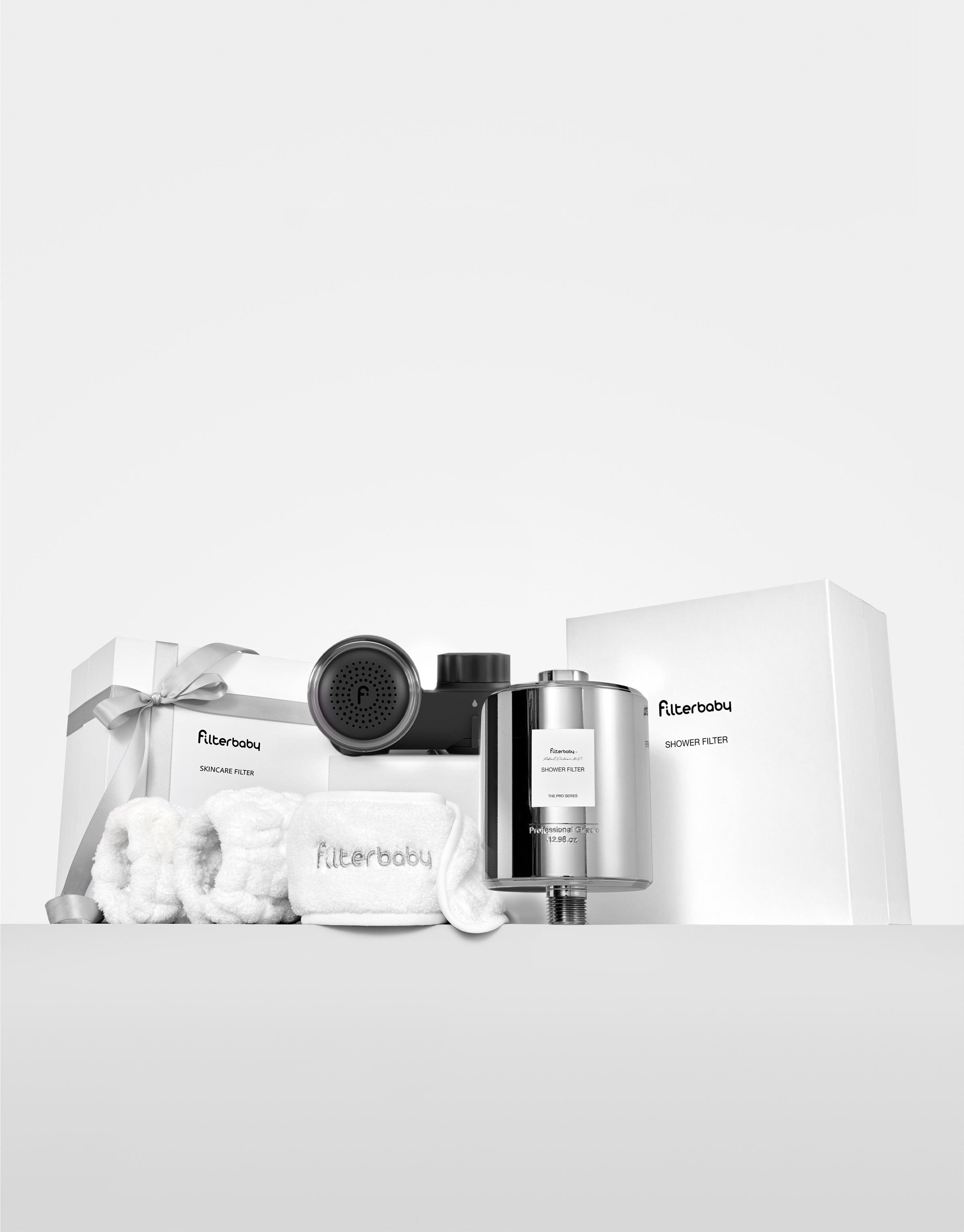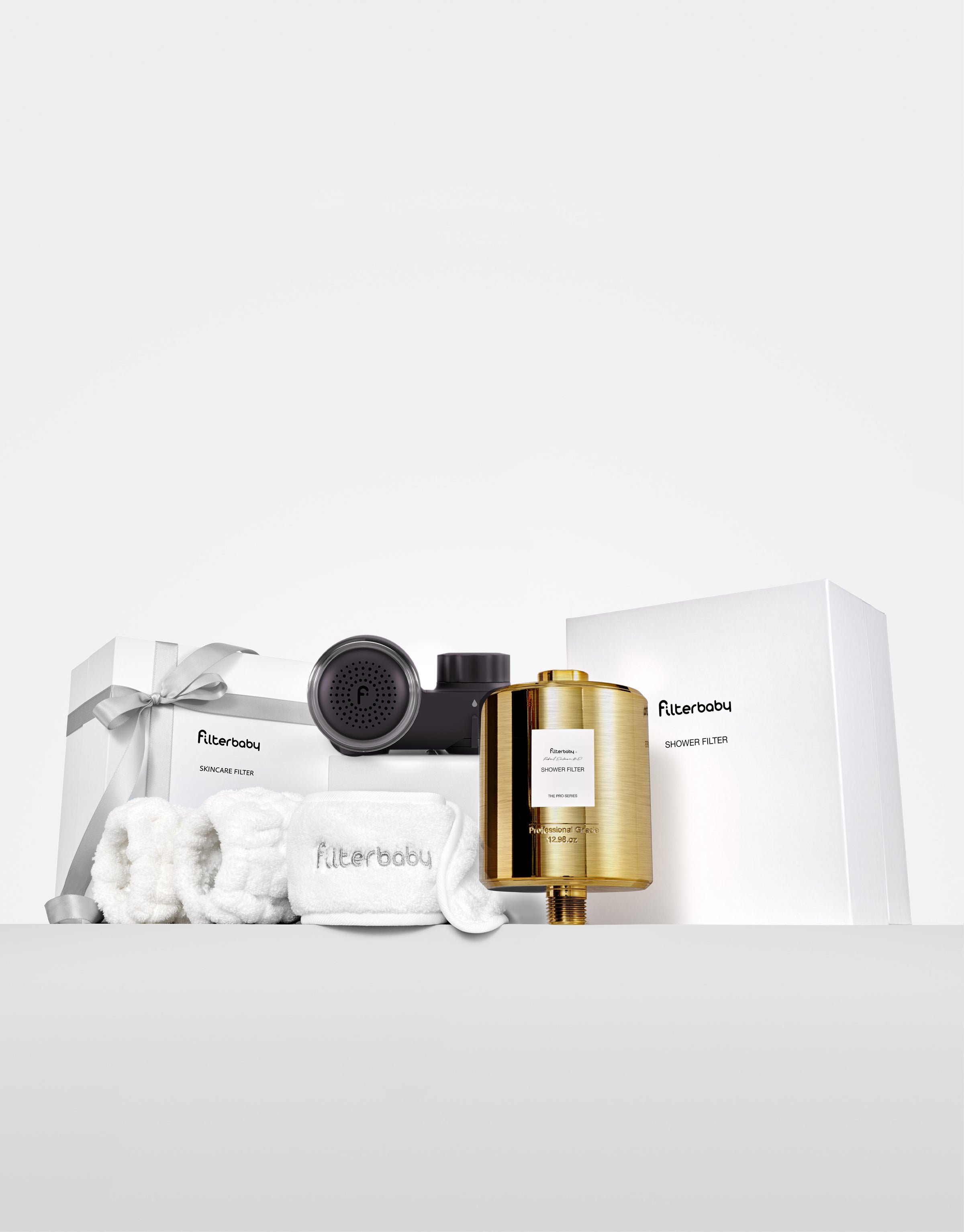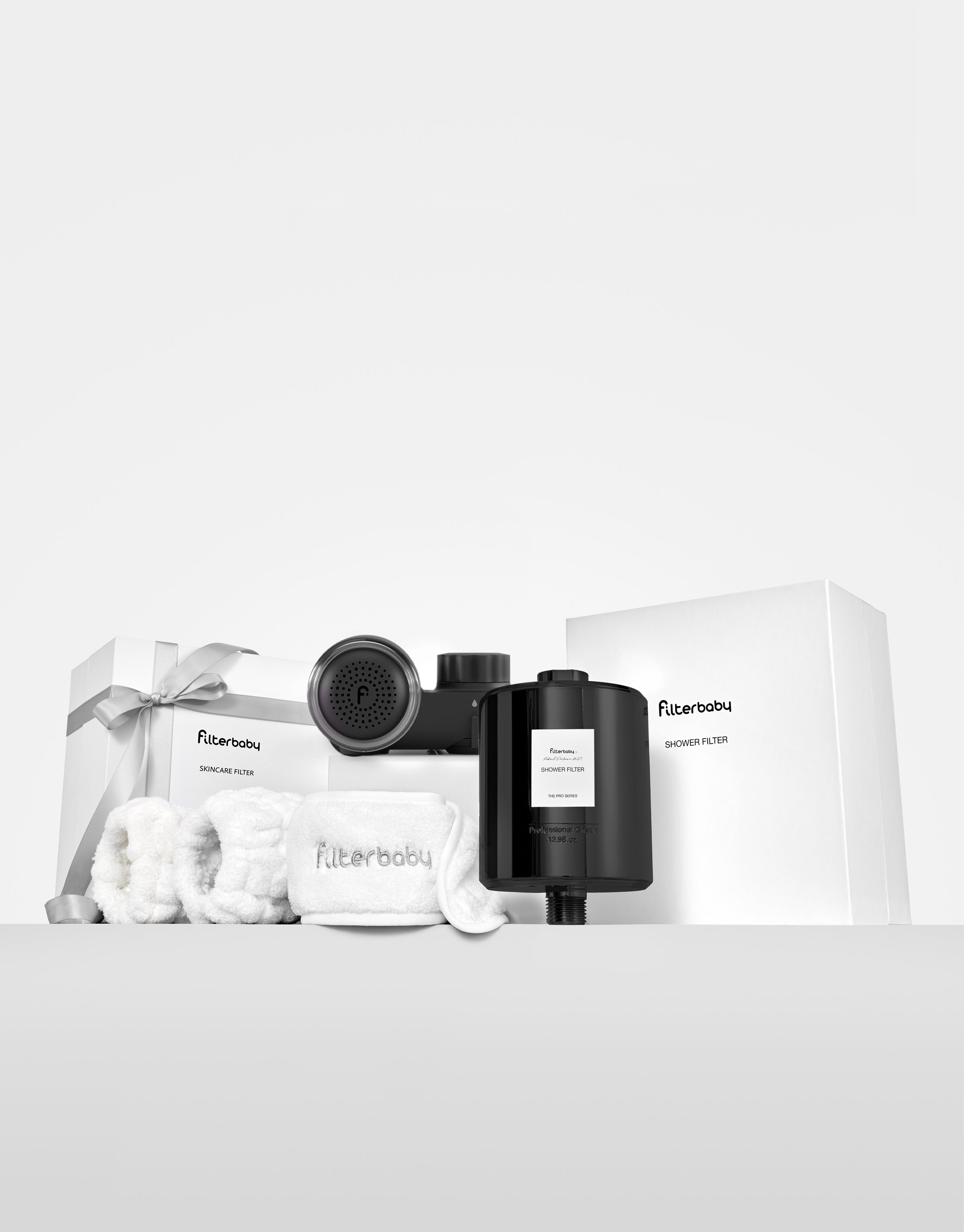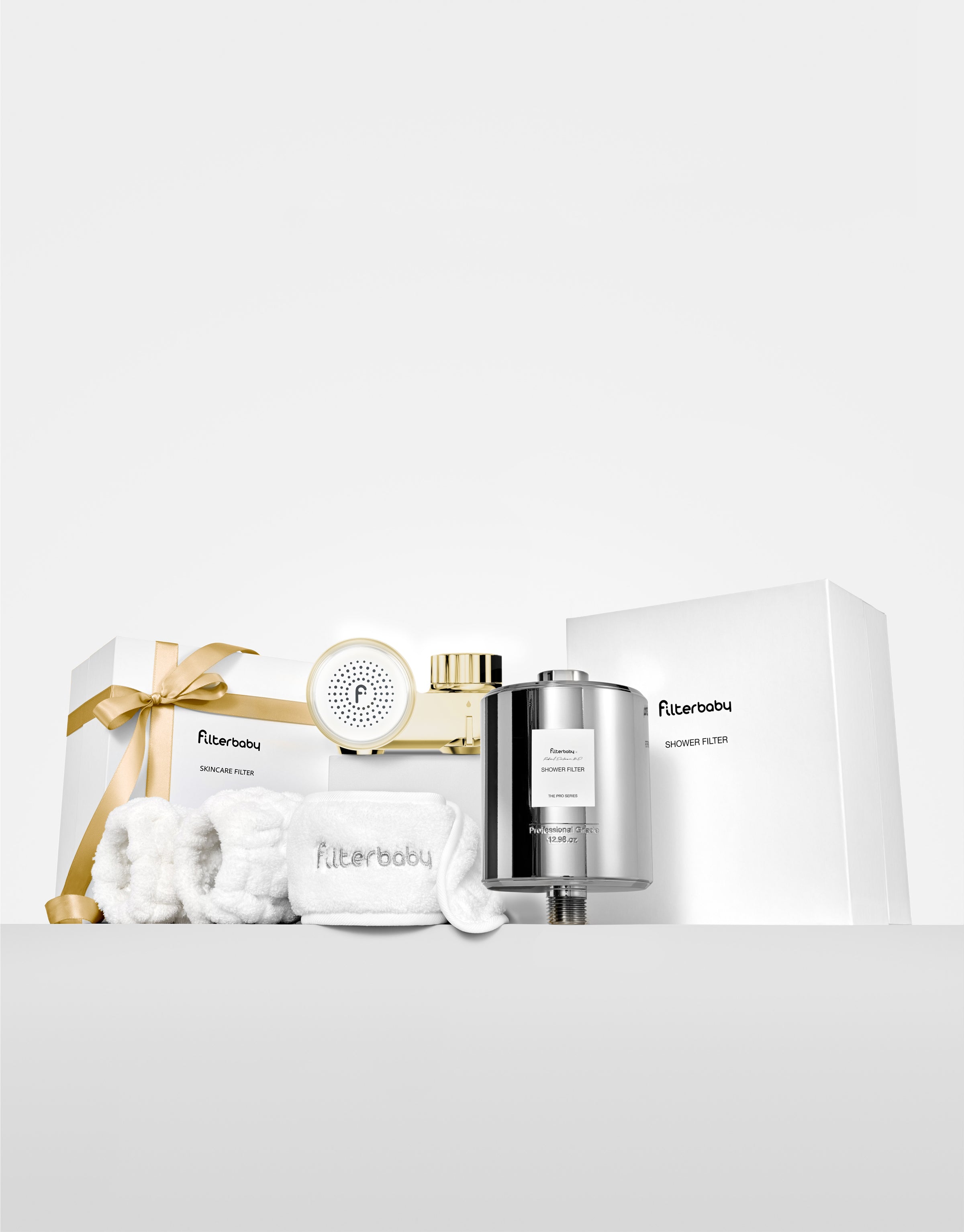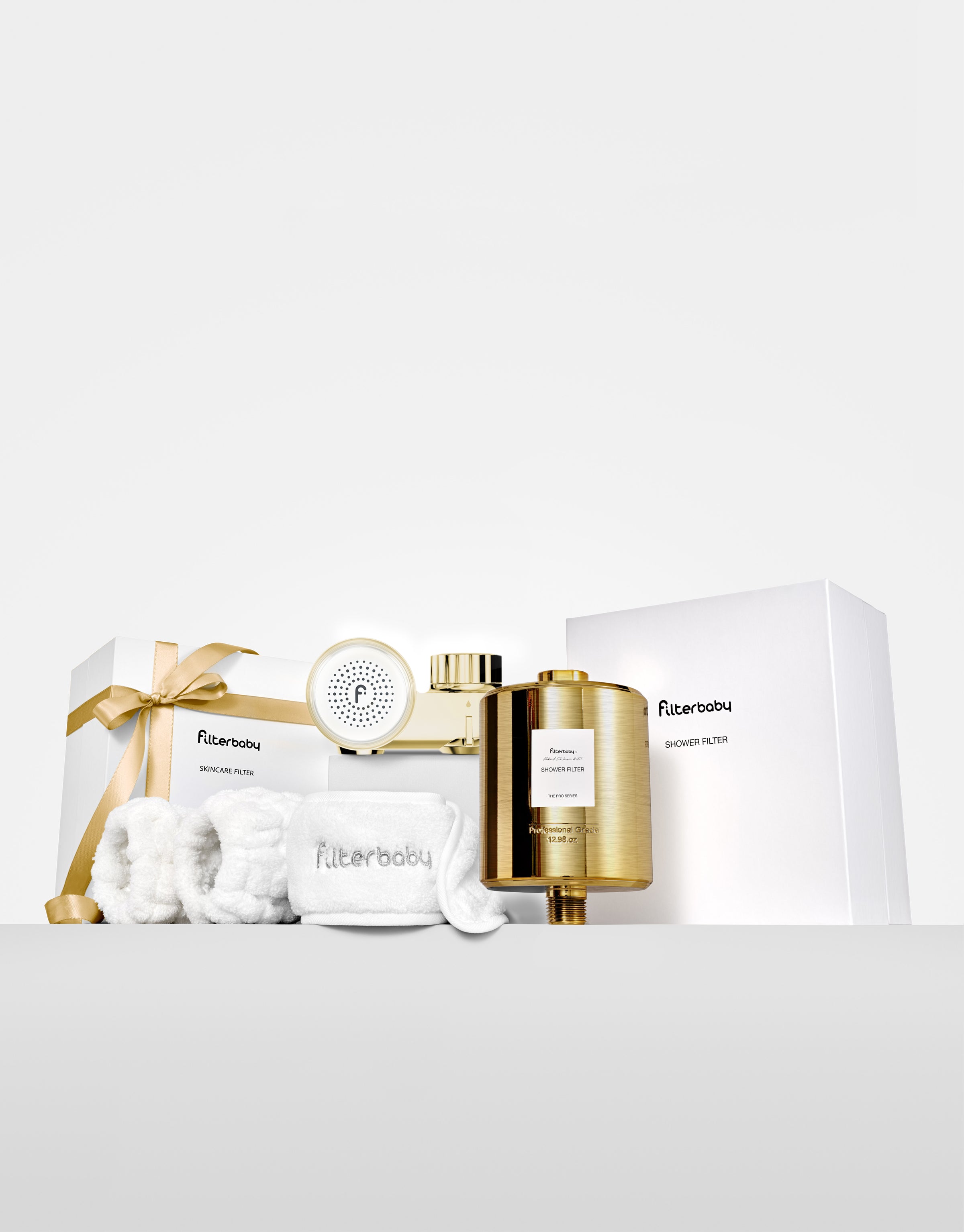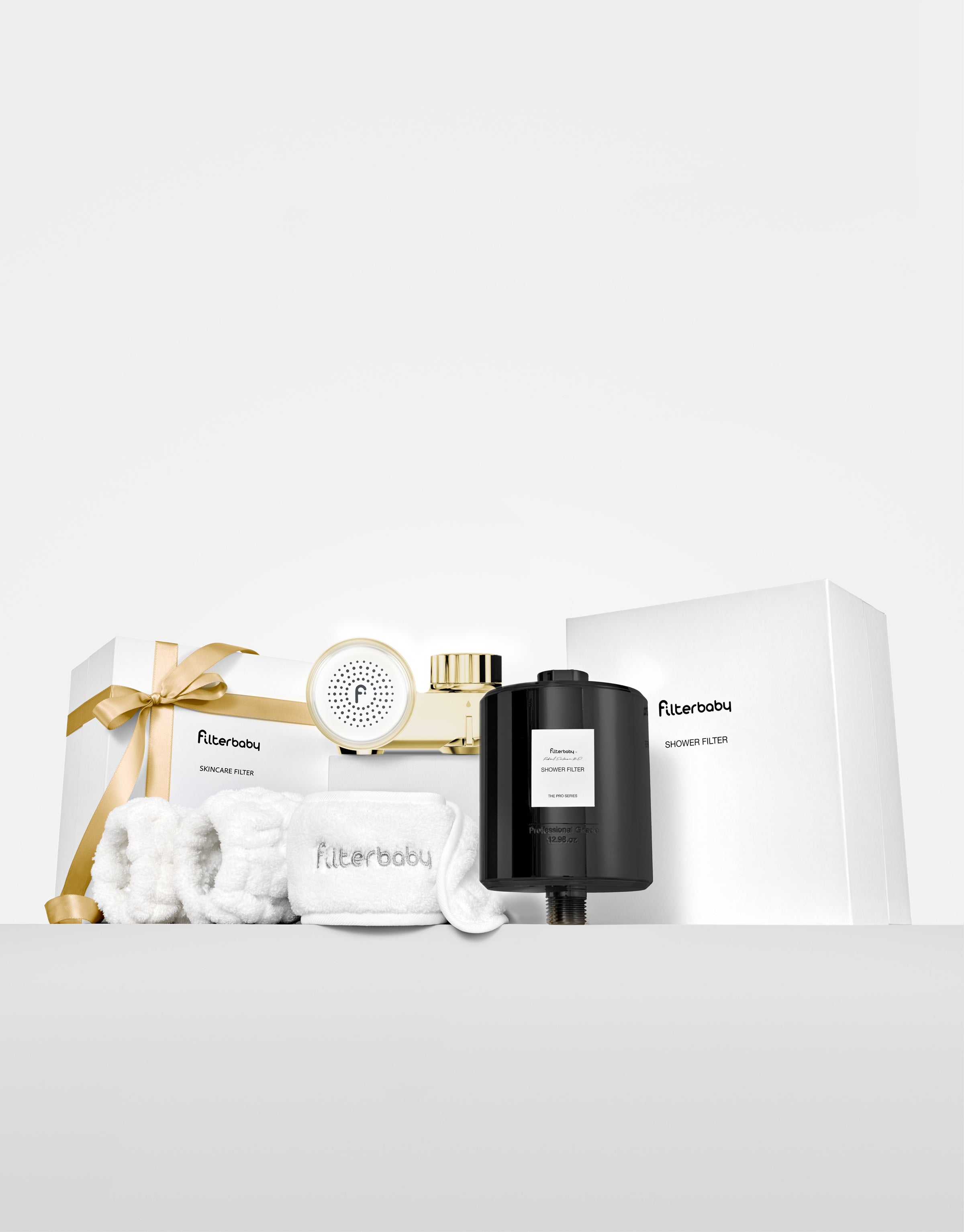Have you ever washed your face 4 times a day to try rid of that one pesky breakout? Tried an entire skincare line from the cosmetics store to no avail?
Stubborn and persistent acne is a universal experience that we are all too familiar with. It can be so frustrating when you feel like you’re doing everything you can and your skin isn’t cooperating. However, lasting relief and results can be found with just a few changes to your everyday routine.
Outlined below are just a few examples of simple changes you can make to target those stubborn breakouts.
Wash With Clean Filtered Water
Let’s start with the basics: your tap water.
Your tap water likely has harmful contaminants that cannot be seen to the eye. Chlorine, byproducts of chlorination, heavy metals, mineral deposits, and a myriad of other contaminants can be found lurking in your tap water and aren’t exactly great for your skin.
When mixed with soaps, contaminants in your tap water can form drying, salt deposits on your skin that clog your pores. This combination of dryness and clogs pores can lead to excessive oil production and acne.
So what can you do about your tap water (aside from writing that strongly worded letter to your local water company)? Filter the tap water you use for your skincare.
When you filter your water,, common tap water contaminants can be dissolved and trapped, leaving behind water that is safe to use on your delicate facial skin. We typically filter our tap water before drinking it, so shouldn’t we do the same when washing our faces?
The Filterbaby PROdermis water filter is the perfect answer to our contaminated bathroom faucets. Filterbaby dramatically reduces heavy metals and high mineral content found in tap water. It provides pure, filtered water that when used, has been found to encourage increased skin hydration and overall cleaner skin.
Give it 4 Weeks
Patience is a virtue especially when it comes to trying new acne treatments. While it may be tempting to try a new product every week–especially if your skin doesn’t respond right away–doing so may irritate your skin and encourage new breakouts.
Give a new product 4 to 6 weeks to show improvement. Sometimes, it can take up to two to three months to experience clearing.
Keep using the treatment even after your skin has cleared. This will help maintain your skin and to prevent new breakouts.
Caveat: if a new product is irritating your skin, causing redness, excessive dryness, or a burning sensation, stop using it immediately.
Attack the Different Causes Of Acne
If your acne persists after 4 to 6 weeks, add a second acne product to your treatment plan.
This approach can help attack the different causes of acne. A non-exhaustive list includes:
- Bacteria
- Clogged pores
- Oil
- Inflammation
The second treatment should attack a different cause of acne. For example, if you are using an acne treatment that focuses on oil control, the second acne treatment should target bacteria. Common treatments include benzoyl peroxide, retinols, and salicylic acid.
Learn more about common acne-fighting ingredients and supercharge your routine with high impact products.
Follow the Directions
While it may seem straightforward, it's important to follow the correct dosages and usage frequencies of a product. Be sure to double-check the instructions on any packaging. If you are using a dermatologist’s treatment plan, be sure not to skip any steps.
Wash Your Face Twice a Day, And Every time You Sweat
According to board-certified dermatologist and Women’s Dermatologic Society vice president Dr. Mona Gohara:
“Not washing enough can lead to clogged pores and acne. It also may preclude other products from penetrating and doing their job.”
Washing your face once in the morning and once in the evening, and occasionally when your face is particularly sweaty, is recommended. Be careful not to overwash, as this may dry out and irritate your skin further.
If you’re washing your face more than twice per day or using a very harsh cleanser, consider switching to less frequent, gentle washes. Acne is often caused by overwashing.
Don’t Scrub
Scrubbing your skin too aggressively has been linked to irritation and the prolonging of breakouts.
Director of the Physicians Laser and Dermatology Institute Dr. Jerome Garden recommends wetting your face with lukewarm water and using your fingertips to apply cleanser in a gentle circular motion.
Dying for some exfoliation? Try a gentle chemical exfoliant. Look for ingredients like Alpha hydroxy acids (AHAs) and Beta hydroxy acids (BHAs). Exfoliate sparingly. Typically, acne-prone skin is not in dire need of exfoliation.
Use the Right Products
When searching for products, look out for words such as:
- “Won't clog pores”
- Non-comedogenic
- Non-acnegenic
- Oil free
Products with these labels are made without irritating or clogging ingredients. However, because some of these skin care products may still cause breakouts, you may need to test different products before you find ones that work for you.
Don’t Touch Your Acne
Popping and picking at your face can cause some of the worst irritation to your skin and may even induce scarring.
Resist the urge, and try not to touch your face as much as possible.
Spread Acne Medication All Over Your Skin
A little goes a long way. Rather than exclusively targeting large blemishes, spread a thin layer of product all across your skin. This will not only relieve active breakouts, but will also prevent future acne.
